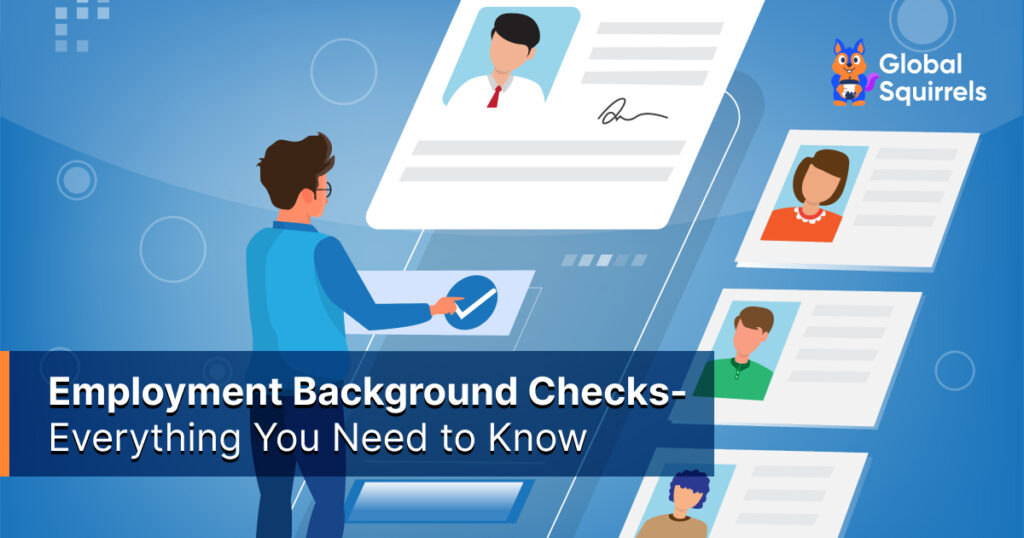Employment Background Checks – Everything You Need to Know

In today’s competitive job market, pre-employment background checks have become a standard procedure for many employers. These checks confirm the candidate’s identity, work and education history, and ensure they have no criminal record. Although background checks help keep the workplace safe, the process can be slow and complicated.
A majority of companies, especially small to mid-sized enterprises (SMEs), go all in for background checks, which takes a toll on their internal teams. Without the right technology or the knowledge to support a comprehensive screening process, they may be unable to keep up. This results in the verification being interrupted, creating gaps in the process, and the business faces risks and mistakes that a smoother process could avoid. Furthermore, if they receive a high volume of applicants, bottlenecks and delays in hiring can occur, potentially resulting in the loss of top talent.
But how many years do background checks usually cover? It really depends how far back an employer looks into a candidate’s history. Some employers may look only at recent years, while others may look further back in time. The scope of the background check is determined by factors like the position’s sensitivity, the industry regulations, and the company policy.
What are pre-employment background checks and employment background checks?
-
Pre-employment background checks
Pre-employment background checks are a key step in the hiring process. This process is performed before an offer is made. Employers should check the candidate’s qualifications and background, making it easier for you to choose the right person to hire.
Purpose:
- Verification of identity: Verification of the candidate’s identity by using official documents is a critical step in background verification to reduce the instances of impersonation.
- Education and employment history: Background checks in employment verify educational qualifications and previous job roles, ensuring they align with what the candidate has claimed. This is effective in ensuring that no false representations are made.
- Criminal history check: A background check involves a criminal record check to establish whether the employee had any legal troubles in the past that may affect the safety and integrity of the workplace and company compliance.
- Credit checks: For some positions, where your employee deals with financials, pre-employment background checks may involve a credit history check, which will show about your employee’s financial responsibility and credibility.
-
Employment background checks
Employment background checks can occur at various stages of employment, including before hiring and during ongoing employment. They involve a more comprehensive review of an employee’s history.
Purpose:
- Ongoing verification: Making sure employees keep up with your requirements and adhere to the law.
- Risk reduction: Finding possible issues that might show up after hiring, like new criminal charges or a change in professional status.
- Regulatory compliance: The law may require continuous checks in regulated industries.
What happens in a general background check process?
The most common background check for employers typically includes several key components that help employers assess the suitability of candidates. These checks are essential for ensuring workplace safety and verifying the information provided by applicants.
-
Criminal background check
This investigates any past criminal convictions. For positions that need high levels of trust, those involving sensitive information or vulnerable populations like children and the elderly it is critical.
-
Employment verification
Employers check past jobs to make sure the candidate did what they said. They did for a duration of service. This helps to ensure that candidates are actually experienced.
-
Education verification
This process ensures the candidate’s educational qualifications, degrees, and certifications. It means that candidates are qualified academically for the role.
-
Identity verification
The first of these foundational checks ensures that the candidate is who they claim to be by checking official documents such as driver’s licenses or passports.
Here are 3 benefits of conducting employment background checks
-
Enhancing workplace safety
It is important to conduct background checks to keep a safe work environment. They also help weed out candidates with any history of suspicious behavior or other criminal activities that could make them risks to employees and clients. In fact, this is more important for those jobs where the safety aspect plays a major role — for example, those jobs that require handling sensitive or vulnerable data. Organizations can significantly reduce the risk of workplace incidents and protect their employees and customers from harm by screening out potentially dangerous candidates before hiring.
-
Improving hiring decisions
Background checks give trusted info on a person’s job history, education, and legal record. This serves as a verification process that ensures the organizations make a more informed decision on who to hire, thereby decreasing the chance of hiring ignorant or unqualified people. However, by helping companies verify that candidates possess the skills and qualifications they claim, they can help improve the overall quality of the company’s workforce, resulting in more productivity and lower turnover rates.
- Protecting organizational reputation
The background check process helps protect your business’s reputation from hiring those who commit misconduct or unethical behavior. A negative incident with an employee can cause adverse and critical reputational damage and loss. You can protect your company from lawsuits for hiring the wrong person by showing that you have practiced due diligence in the hiring process and, by doing so, establish a reputation for ethical hiring practices that instill confidence in clients and other stakeholders.
Related read: Employee Background Checks in India
Challenges faced during employment background checks and how to overcome them
-
Time and cost consumption
Background checks are both time-consuming and expensive, especially when carried out manually. It can also delay the hiring process and increase costs over time.
Solution: Automating the entire system of background checks, such as partnering with our platform that offers cost-effective solutions, also saving you time, can provide better results without unnecessary manual data entry or follow-up. By using our platform, you get quicker processing times and cost savings with fewer labor-intensive tasks.
-
Legal and compliance issues
Understanding background check laws can be hard, as there are numerous regulations at the federal, state, and local levels.
Solution: There must be a clear and comprehensive background screening policy. Employers should examine this policy regularly to remain compliant with the statutory laws of the Fair Credit Reporting Act (FCRA) and Equal Employment Opportunity Commission (EEOC) guidelines.
-
Candidate privacy concerns
Candidates may have concerns regarding how their personal information will be used and stored during the background check process.
Solution: Be clear about how candidate data will be used and stored and stored and getting candidate consent can help rid your company of these worries. Not only does this help you comply with laws, but it also helps create trust with candidates.
- Identity verification issues
Verifying a candidate’s identity is a significant risk in remote hiring, as identity theft is very real.
Solution: Robust identity verification processes, including digital checks of government-issued IDs and bio metrics, can help increase accuracy on the basis of candidate identities.
- Data availability variability
Inconsistent data availability across different jurisdictions complicates thorough background checks, particularly for global hires.
Solution: This challenge can be overcome using advanced technology platforms that aggregate data from many sources. AI tools can help match data from different sources more accurately.
